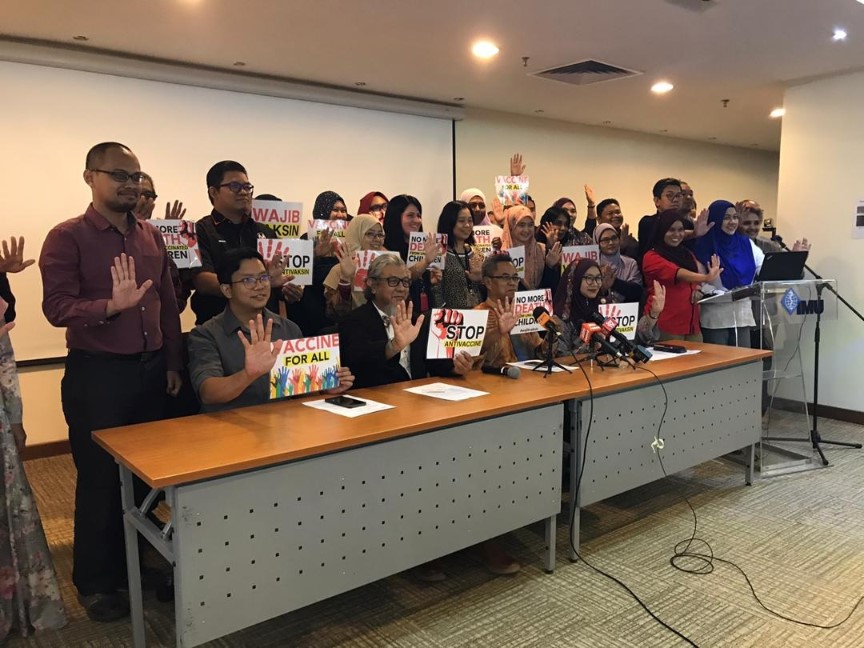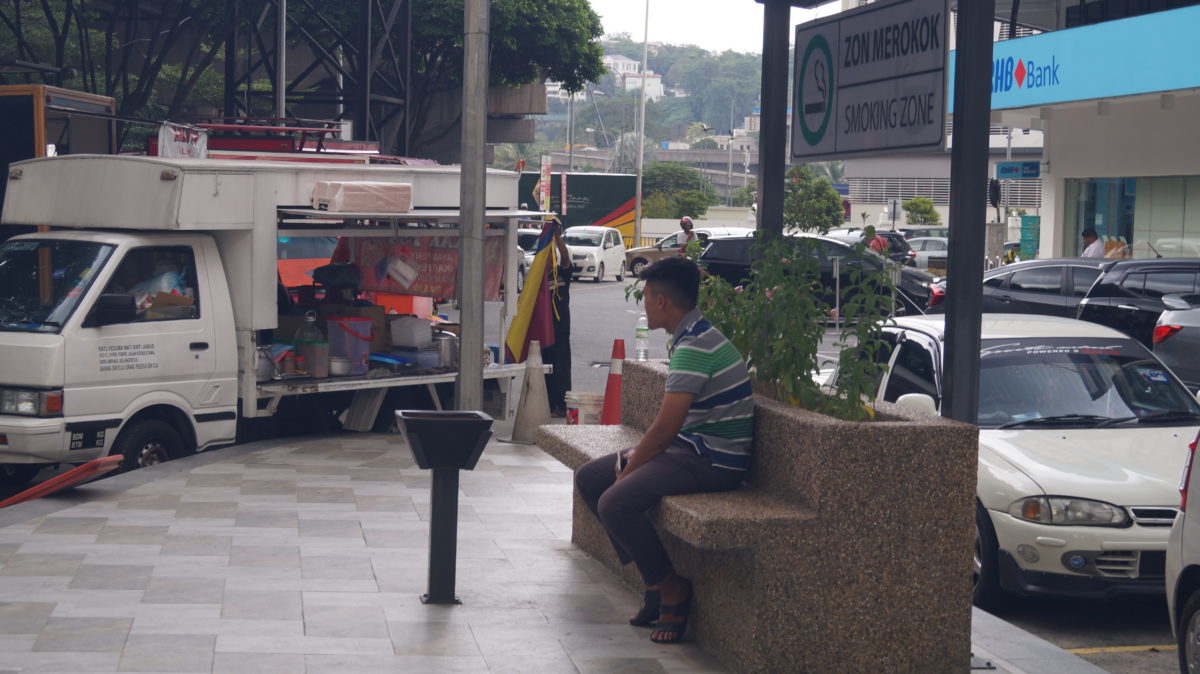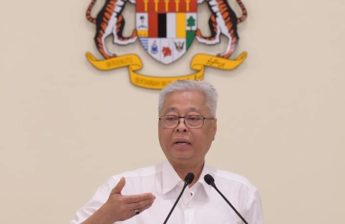KUALA LUMPUR, Jan 23 — Anti-tobacco advocates have expressed support for new government guidelines on the makeshift nature of designated smoking zones, after previously protesting against shaded structures.
CodeBlue recently reported on the Housing and Local Government Ministry’s (KPKT) guidelines of the Cabinet-approved government project — which will see the erection of “temporary” designated smoking areas with trash cans and ashtrays in public areas — that were distributed to 150 local councils nationwide.
The Malaysian Public Health Specialists Association (PPPKAM), which was part of 56 groups that opposed the move when it was first announced this month, claimed that the Ministry of Health (MOH) was agreeable with the guidelines.
“As long as they follow the guidelines — the guidelines have been issued and discussed with the Ministry of Health — so long as they follow, and not use public money, and (it) is temporary, we have no problem,” PPPKAM president Dr Zainal Ariffin Omar told CodeBlue today.
Speaking on the sidelines of a programme at International Medical University (IMU) here, Dr Zainal said it was a good thing not to make the structures permanent, adding that he expected the smoking zones to be in place only for a few months.
He expressed hope that people will be inspired to quit smoking with the smoking zones in place, as no-smoking signs would be in place, and there would be no pro-smoking advertisements or materials.
But when pointed out that the smoking zones still use public funds, which was among the many concerns that Dr Zainal and the other 55 groups highlighted earlier this month, he merely said: “It’s not okay, but it’s okay for a while lah, temporarily.”
PPPKAM and other groups had slammed the RM1 million allocation in funding for designated smoking zones in public areas. The anti-smoking advocates also raised concerns that the project may undermine the objectives of the smoking ban and encourage young people to light up.
KPKT minister Zuraida Kamaruddin has since said that her ministry will review the RM1 million allocation, amid calls that public funds of such an exorbitant figure should go towards quit-smoking services instead.
Local Government Department director-general Noor-Ihsan Che Mat wrote in his letter to mayors and local council presidents to set up designated smoking zones “if there is a need” and an “appropriate location”, as part of efforts to support the ongoing smoking ban at public eateries that took effect this year.
The designated smoking zones must provide a trash can and ashtray, with a clear “Kawasan Merokok” (Smoking Area) sign. No food or drink can be sold or served in those smoking areas that can only have basic facilities.

Meanwhile, Galen Centre for Health and Social Policy chief executive Azrul Mohd Khalib questioned whether the existing smoking zone in Ampang Jaya City Council, which is Zuraida’s federal seat, is a temporary structure. The smoking area, which has a seat and canopy, was erected as part of the first phase of the smoking zone project.
“The Ampang one looks permanent though,” he told CodeBlue when met here. “I think that should not be the model for which these temporary structures should be based on… We should not be building permanent structures.”
The health and social outcomes think tank boss also agreed that the RM1 million allocation could be used for other things, but emphasised that the smoking zones are only temporary. Azrul hoped that KPKT was looking at phasing out the structures at a certain point in time.
“In the same way that the local governments are putting (out) these facilities for smokers, they should also complement that with active anti-smoking campaigns done at the local government level so that it balances out the efforts that are being done for the smoking.
“The local governments should play their part in promoting anti-smoking environment and not just depend on the Ministry of Health to conduct its work,” Azrul said.
Asked if the government’s current anti-smoking drive has been effective, Azrul said it was too soon to tell, noting that it has only been about one month since the smoking ban was properly enforced at eateries.
“We’ll see it in maybe the first six months after whether or not the effort is effective,” he clarified.
“However, it needs to be emphasised that this is an ongoing effort, it needs to be sustained, committed to, long term. It cannot just be first three months of the year.”
Azrul described anti-smoking campaigns as a long-term investment in preventing non-communicable diseases.
“Therefore, it will take several years before we see gains, increased, improved health outcomes, etc as a result of these efforts.”
Azrul also lauded the smoking ban, saying it is a progressive move, and hoped that enforcement efforts were done as effectively as possible to ensure that “they are not just pieces of legislation that are only in name”, but are actually proactive.








